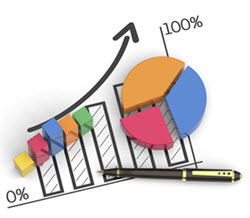Archived Content: The information in this post is no longer current. For up to date tax advice and articles Go to our Etax Blog
Should businesses shoulder a fair share of taxes compared with hard-working Australian people? We might see this question discussed more in coming years. Using an international shell-game to move earnings away from the tax man, corporations legally avoid taxes in countries like Australia, even though they earn billions here. Similar tax breaks are simply not available to ‘normal’ Aussie businesses or to working people.
The Australian government is facing renewed calls to toughen rules and regulations as journalists worldwide uncover more details on how multinational companies shift their profits around to globe to avoid paying Australian taxes.
Pushing this issue back into the limelight was the revelation that Australia’s largest coalminer, Glencore (formerly Xstrata), paid almost no tax over the past three years even though they generated income of $15 billion.
Further reports have since emerged that most of the biggest companies operating in Australia pay less than 10% tax.
Questions are now being asked about how they get away with it.
So how do the tax loopholes work?

A group of more than 80 journalists from 26 different countries recently revealed the extent of how corporations use (or abuse) the tax laws and receive official “comfort letters” excusing them from tax in Luxembourg – which then becomes a trick to avoid taxes in other countries.
To put it simply, multinational companies move their income offshore to their other offices and their subsidiary companies in countries with low tax rates (Luxemburg, Bermuda, British Virgin Islands, Singapore), while at the same time moving their debts to high tax jurisdictions like Australia, where they get better deductions for debts or expenses.
Money moves back-and-forth around the globe in order to take advantage of every tax break, discount and loophole possible.
Some of our favourite brands and most recognised companies are legally structured using incredibly complex webs and connections, including the use of ‘fake’ companies or offices in a country like Luxembourg that will then receive profits earned in another country like Australia. Why do companies need offices in Luxembourg? Simply, to help them pay less in countries like Australia.
This means they can claim a deduction against the debt and lower their taxable income, the same way a deduction works on individual tax. When their income is shifted offshore so it looks like they are not earning as much as their actual numbers in a country like Australia, this gives them an extra advantage to pay less tax.
What sort of money are we talking about?
With so much media and Government attention driving negative commentary about the Australian economy – and very little press coverage of corporate tax cheats – we might assume there isn’t a lot at stake. In fact, the money corporation sneak out of Australia (and away from Australian taxes that pay for the running of the country) is a huge amount.
A report released by the Tax Justice Network and the union United Voice found that in just the past two years alone, corporations diverted as much as $80 billion of tax away from the Australian Tax Office.
To put that amount into perspective – $80 billion would have been enough to wipe out the past two budget deficits!
Is it legal?
Incredibly, yes. The complex corporate structures and loopholes are dreamed up by big business consulting firms like Price Waterhouse Coopers, implicated in recent media coverage as the mastermind of some corporate tax avoidance schemes.
If Governments change the rules, it is expected that big business will quickly devise new schemes to avoid taxes.
What companies do this?
The list includes the biggest and most successful businesses and brands.[unordered_list style=”green-dot”]
- Apple
- News Corporation (Owned by the Murdoch family, the biggest owner of Australian newspapers).
- Microsoft
- Pepsi
- …and countless other global businesses, from makers of household cleaners to makers of luxury handbags.
“Would these companies be so successful if they paid fair taxes in the countries where they earn their money?”
So what can we do about it?
At a time when Australian taxpayers are facing “tax bracket creep” costing them up to $3,800 a year, we’d hope the Government will act fast and tough on corporate tax dodgers in Australia.
Corporate tax dodging was on the agenda at the recent G20 leaders meeting in Brisbane, and the federal government is currently “talking the talk” about measures to crack down on dodgy tax accounting.
Unfortunately, that’s easier said than done. Without top-level politicians making firm changes to close tax loopholes and facing-down the inevitable counter-pressure from corporations, the big-business tax-dodge might carry on for years.
It still remains to be seen whether or not the Government can walk the walk…
Here’s some media coverage about corporate tax tricks:
- Australian Financial Review on how Ikea avoids taxes
- The Economist (international) on how money gets shifted around the globe (the article is in-depth but paragraph two is a tidy summary)
- SMH reports on brave political talk – will it lead to brave action?
- The Guardian shows real examples of complex corporate structures.
- The New Yorker (USA) back in 2013 wrote about the biggest companies and their tax schemes.




